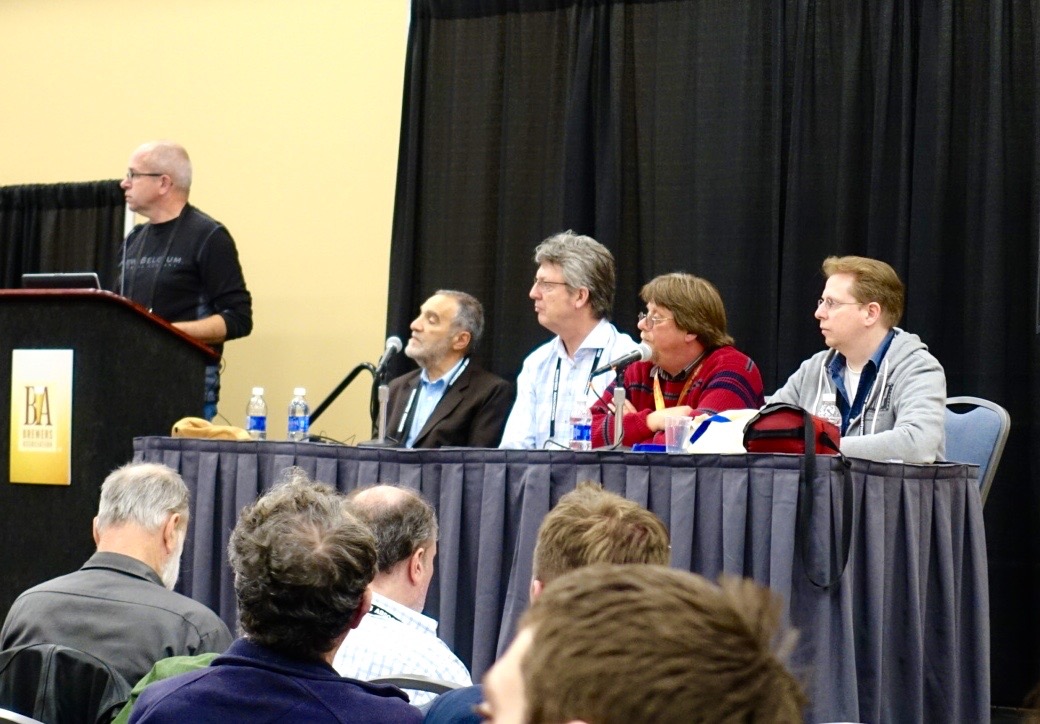
Brewers unearthing lost beer styles
The Craft Brewers Conference 2016 occasioned a meeting of passionate brewers and historians interested in collaborating on a worldwide effort to unearth “lost” beer styles.
Thanks to fragmented research efforts in different corners of the world, the Brewers Association has been slowly adding historical styles to its Beer Style Guidelines, custodian Charlie Papazian told the Historical Beer Styles Roundtable in Philadelphia, USA.
“One of the overall philosophies that I maintain is to recognise that there are traditional styles of beer that have been brewed for hundreds of years and they may change in the marketplace, but I think it’s still important to maintain a descriptor for those styles as they were originally brewed,” he said.
“And if they’re modern versions, delineate between a modern version and a historic version.
“We add a few every year. The resources have been very few and very far [between]. Now they are coming together, like this discussion we’re having here.
“Recognising beer styles that have been virtually lost or just rediscovered would certainly be welcome in the Beer Style Guidelines,” Papazian said.
Schöps, Sahti and more
The following historical beer styles were added to the Beer Style Guidelines 2016 Edition:
- Breslau-Style Pale Schöps and Breslau-Style Dark Schöps – Schops are historic ale styles (the early Prussian city of Breslau is now called Wroclaw and is located within Poland), brewed perhaps as early as the 1300s, and by the 1600s documented as predominantly wheat-based;
- Finnish-Style Sahti – traditional Finnish style with juniper and baker’s or bread yeast; and
- Swedish-Style Gotlandsdricke – traditional Swedish style with juniper, birchwood smoke notes and baker’s or bread yeast.
Papazian said the rapid evolution of what constitutes beer in modern brewing terms may unlock additional beer styles that have been lost.
“Beer is recognised as something different to what it was 50 years ago or even 30 years ago,” he said.
“Go beyond the traditional sources of historical information because there’s probably things… that may not be in the historical records as ‘beer’, but could be outside the box and really actually be beer as defined as we do today, in an innovative way.”
Have a crack
Papazian said researching lost beer styles is a painstaking process and researchers should not expect to get the description and style parameters right first time.
“It’s always hard to come to a consensus, but you’ve got to put something out there,” he said.
“I’ve learned that you give it a shot and let the beer community, the brewing community, the public react to your first attempt and be ready to adapt and evolve and correct things.
“When we first came out with the beer style Grodziskie from Poland, we didn’t get it quite right. We created an international incident… The equivalent of National Public Radio in Poland was on the air protesting about how we’d described the beer style, and so we reconciled with the information that they gave and we got it right.
“It’s not just a scholarly process, you have to involve the people that drink beer and their memories and their traditions and their experiences.
“You’ve got to give it a shot and just recognise that you might not get it right the first time. See what happens and be flexible to get it right,” Papazian said.
Ancient yeast is key
The key to unlocking many historic beer styles is the ancient yeast strains used by brewers of that era, Yvan De Baets of Belgium’s Brasserie de la Senne told the forum.
He said old brewing books typically focus unduly on the mashing procedures, which brewers of that era thought were responsible for creating their unique local beer styles.
“I think that one thing that is very important is getting to know the ancient strains of yeast better and also starting collecting them in the ancient locations where specific styles were made,” De Baets said.
“And for that, we need a lot of scientists actually, because this is high level science. We should collect everything we can and have a huge bank that is accessible to everyone.
“I would hate to see that patented by some yeast companies or whatever, because it belongs to humanity. From that we can start doing some real research and make beer according to ancient techniques and recipes. The key will be to find the right yeasts,” De Baets said.
Working committee
Moderator Peter Bouckaert, brewmaster at New Belgium Brewing Company, called for expressions of interest from delegates interested in participating in a working committee to unearth historical beer styles.
“Is this a start? Are we going to be proud about what we are going to do from now, in ten years?” he asked, to cheers and applause from the floor.





